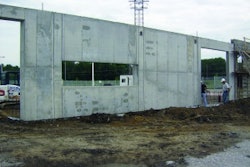
Josh Voorhees, E&E reporter
A House Transportation and Infrastructure panel will take another look tomorrow at the job creation that has resulted from the roughly $48 billion this year's stimulus law gave to roads, rails and airports.
The Economic Development, Public Building and Emergency Management Subcommittee hearing will likely serve as the latest round in the partisan battle over whether the federal investment has buoyed the struggling construction industry.
The speed at which the cash is being spent has been a centerpiece of White House efforts to convince Americans that the stimulus is working, and Transportation Secretary Ray LaHood has traveled to nearly three-dozen states as part of its multi-month rollout.
The agency said that as of the start of this month it had obligated $19.4 billion of the $27.1 billion in road and bridge funds, $7.2 billion of its $8.4 billion in transit cash, and nearly all of the $1.1 billion set aside for the nation's airports.
T&I Chairman James Oberstar (D Minn.) has been a vocal supporter of the Department of Transportation's efforts and has estimated that the total number of jobs created or saved by the investment in the nation's infrastructure will grow to 250,000 by next month.
Still, many Republicans -- including T&I Committee ranking member John Mica (R-Fla.) -- have been critical of the effort, arguing that while much of the stimulus money has been allocated by DOT, it has yet to translate into shovels in the ground.
At a hearing last month, Mica argued that in reality DOT had only "spent" $3.4 billion of its total stimulus cash and urged lawmakers to work to streamline the permitting process to allow road and bridge work to start sooner.
LaHood was quick to push back against such criticism, which has been a fixture in Republican talking points for months. He explained that while the Treasury had only sent $3.4 billion to states, that was because financial transactions occur only after work is completed.
According to DOT, the funding process starts with states identifying which projects they want done and sending invitations to contractors to bid on jobs. When a contract is awarded, the funds are deemed "obligated."
"At this point, the winning contractor begins hiring a project work force and orders needed supplies and equipment," LaHood said. "This is the point in the process when the project is considered to be 'under way' and the point at which jobs are created."
When segments of construction are completed, the contractor bills the state, which requests reimbursement from DOT.
Schedule: The hearing is tomorrow at 2 p.m. in 2167 Rayburn.
Witnesses: TBA.

















